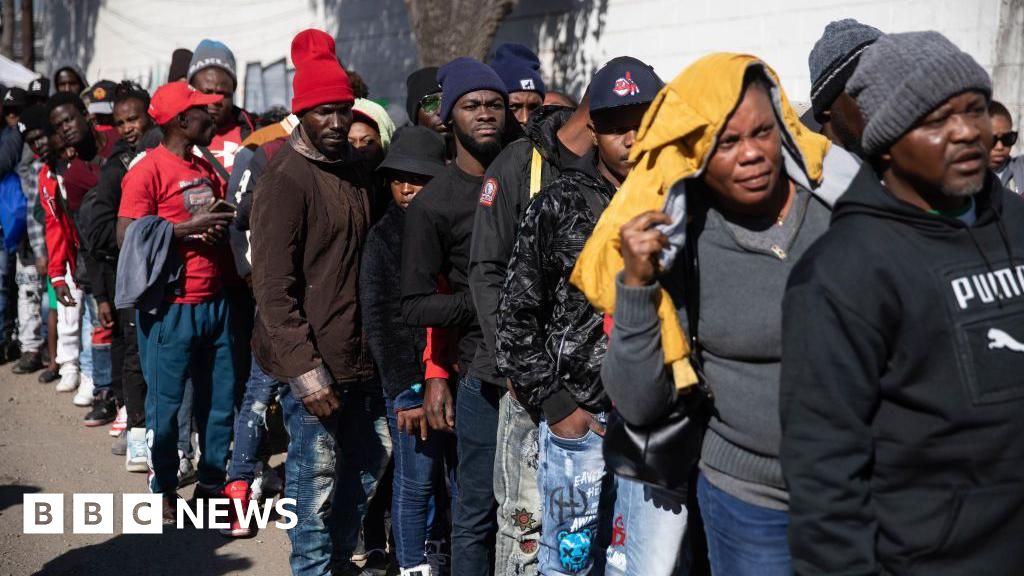
The government says it will not halt deportations, and business leaders call for a plan to regularize Haitians
<p>The industrial and business sectors have begun to express their concern about the immigration policy implemented by the government of President Luis Abinader, which, since October last year, has aimed to deport 10,000 undocumented immigrants each week. The massive wave of “interdictions”...
The industrial and business sectors have begun to express their concern about the immigration policy implemented by the government of President Luis Abinader, which, since October last year, has aimed to deport 10,000 undocumented immigrants each week.
The massive wave of “interdictions” carried out by the General Directorate of Migration (DGM) in the country is having a particular impact on Haitians living in the country, who continue to cross the border to escape the socio-political crisis in their country.
However, these actions, which are not intended to relax the Executive Branch’s stance, are causing concern among Dominican producers, as citizens of the neighboring country perform important work linked to the country’s economic development.
For this reason, Julio Brache, president of the Association of Industries of the Dominican Republic (AIRD), said last Friday that the most appropriate process to implement is the regularization of undocumented workers.
“Yes, the issue of labor has been affected in some areas, such as construction, agribusiness, and fruit and vegetable harvesting in the countryside…,” said Brache, representing more than 200 industries.
Brache made these statements while participating in an event led by President Abinader, where he also suggested implementing a work permit similar to that used by Mexico and the United States on their border.
Although this is the most recent request, on February 9, the Dominican Association of Home Builders and Developers (Acoprovi) asked the government to regularize at least 87,000 Haitian employees who have been unable to normalize their status due to the lack of permits.
In addition, the president of the association, Annerys Mélendez, described the strategy developed by the authorities to deport Haitians as “unplanned,” according to official media reports. She also claimed they did not allow enough time for workers to complete the legal procedures.
Mélendez assured that construction companies, which generate 435,000 jobs, comply with the Labor Code, Law 16-92 provisions, which establish that at least 80% “of the total number of workers in a company must be Dominican.”
Although this is the primary debate, some opposition political activists have denounced in recent years the negative impacts caused by the mass exodus of Haitians, claiming that they occupy the majority of hospitals and public educational complexes without contributing to the national tax revenue.
“Clear immigration policy”
Presidential spokesman Homero Figueroa has stated that the “government’s immigration policy is clear”: “to reduce the presence of undocumented immigrants, secure the border, and enforce the law. Our policy does not include any regularization plan,” the spokesman said in a post on his social media account.Added to this are the 15 measures announced by the president on April 6, which aim to expand and strengthen surveillance capabilities in the border provinces and strengthen immigration detention efforts within the country.
According to Migration, this year alone, 114,884 Haitians have been handed over to their country’s authorities. This brings the total number of Haitians returned to their country to 1,177,818.
regularization plan
During the National Plan for the Regularization of Foreigners, carried out in 2014 during the term of former President Danilo Medina, 206,073 people from the neighboring country applied to regularize their status in the Dominican Republic. This figure is part of the accounts developed by the DGM.“High-level meeting”
Following its implementation, the president invited former presidents Hipólito Mejía, Leonel Fernández, and Danilo Medina to a “high-level” meeting to address the migration issue affecting the Dominican people.Former President Medina said he was willing to receive the president at the Presidential Palace of the Dominican Liberation Party (PLD). In contrast, former President Fernández believes that the ideal venue would be the Economic and Social Council (CES), created in 2010 during the constitutional reform carried out during his term in office. So far, the Presidency has not reacted to the responses of the political leaders.


